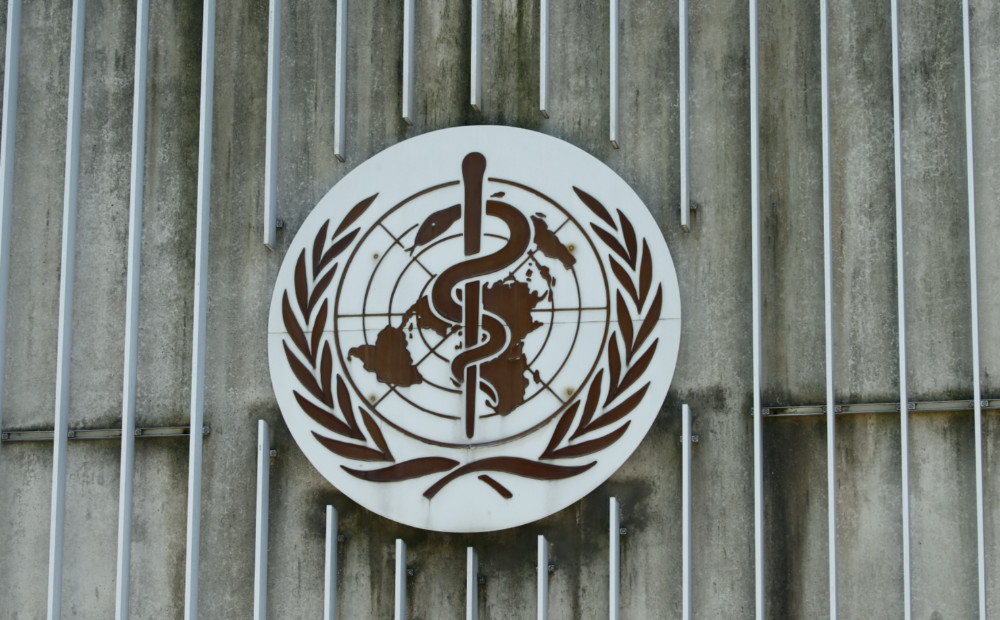The World Health Organization on Tuesday urged countries to join a global pact aimed at ensuring less wealthy countries have access to COVID-19 vaccines, warning about the risks from so-called “vaccine nationalism.” Here is a look at the WHO’s plan and the approaches by wealthier nations.
What is the WHO’s vaccine program?
The COVAX global vaccines facility is a program designed to pool funds from wealthier countries and non-profits to develop a COVID-19 vaccine and distribute it equitably around the world. Its aim is to deliver two billion doses of effective, approved COVID-19 vaccines by the end of 2021.

A logo is pictured on the headquarters of the World Health Orgnaization (WHO) in Geneva, Switzerland, on 25th June. PICTURE: Reuters/Denis Balibouse/File photo.
The details of the program are still being hashed out ahead of a 31st August deadline for nations to join. It is led by the WHO, along with the Gavi vaccine alliance, and the Coalition for Epidemic Preparedness Innovations (CEPI).
COVAX is part of a broader program, called the Access to COVID-19 Tools (ACT) Accelerator, that works to ensure that vaccines, treatments, diagnostic tests and other healthcare resources are broadly available to combat the pandemic.
What are wealthier nations doing?
They have focused on securing vaccines for their own citizens, striking deals for the first doses even as data has yet to prove the vaccines to be effective.
Governments including United States, the United Kingdom, Japan, and the European Union have spent tens of billions of dollars on deals with vaccine makers such as Pfizer Inc, Johnson & Johnson, AstraZeneca Plc and others. The United States alone has committed nearly $US11 billion for development, testing, manufacture and stockpiling of hundreds of millions of doses.
Russia and China are also working on vaccines and have already begun vaccinating some of their citizens.
What kind of resources are being brought to bear?
The ACT Accelerator is financed by a variety of non-profits and governments. It is aiming to raise about $US31 billion.
So far, the COVAX facility has attracted interest from 92 poorer countries hoping for voluntary donations and 80 wealthier countries, a number little changed from a month ago, that would finance the scheme, according to the WHO.
What is the WHO’s concern?
The WHO has expressed concern that wealthier countries hoarding vaccines for their own citizens could impede efforts to end the pandemic.
“We need to prevent vaccine nationalism,” WHO chief Tedros Adhanom Ghebreyesus said during a Tuesday virtual briefing. “Sharing finite supplies strategically and globally is actually in each country’s national interest.”
WHO leaders have said that developing a coordinated global distribution system for COVID-19 vaccines that prioritize those at greatest risk of getting sick, such as healthcare workers, would help curb the spread of coronavirus worldwide.






